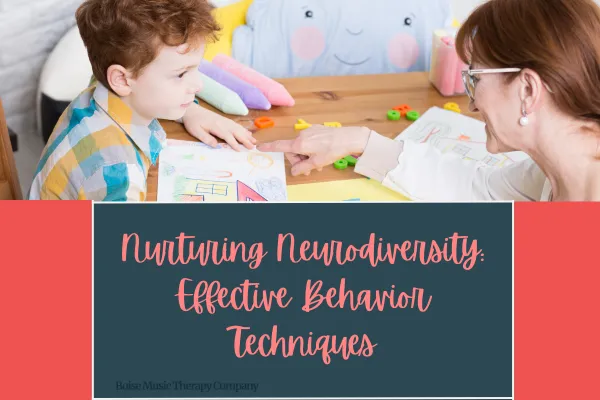
Nurturing Neurodiversity: Effective Behavior Techniques
Redirecting Behavior: Effective Techniques for Supporting Neurodivergent Kids
Neurodiversity encompasses a range of neurological differences, such as autism, ADHD, dyslexia, and more, influencing how individuals perceive and interact with the world. Redirecting behavior in neurodivergent kids requires a thoughtful approach tailored to their unique needs. In this article, we'll explore effective techniques and strategies to redirect behavior, empowering neurodivergent children to thrive.
Understanding Neurodiversity:
Neurodiversity celebrates the diversity of human brains and acknowledges that neurological differences are a natural variation in the human population. Neurodivergent children often perceive and process information differently, impacting their behavior and responses in various situations.
Techniques for Redirecting Behavior:
1. Positive Reinforcement and Reward Systems: Utilize positive reinforcement to encourage desired behaviors. Create a reward system tailored to the child's interests, offering incentives for completing tasks or demonstrating positive behavior. This approach helps in redirecting attention from negative behavior to positive actions.
2. Clear and Concise Communication: Neurodivergent children may struggle with interpreting social cues or understanding instructions. Communicate expectations and consequences in an easily understandable way to your child. Break down tasks into smaller steps, offering guidance throughout the process.
3. Implementing Predictable Routines: Establishing structured routines provides a sense of security for neurodivergent children. Consistency in daily schedules helps in managing behavior by reducing anxiety and uncertainty. Visual schedules or timetables can assist in communicating and reinforcing these routines.
4. Sensory Support: Sensory processing issues are common among neurodivergent individuals. Create a sensory-friendly environment by identifying and accommodating sensory triggers. This might include providing noise-canceling headphones, offering fidget toys, or creating quiet spaces for relaxation.
5. Utilizing Redirecting Strategies: When challenging behaviors arise, employ redirecting techniques instead of punitive measures. Offer alternative activities or interests to shift their focus positively. Redirecting attention can help in defusing potential conflicts or meltdowns.
6. Collaboration and Individualized Support: Work closely with therapists, educators, and specialists to develop individualized strategies catering to the child's needs. Collaborate with professionals to understand and implement effective interventions.
7. Encouraging Self-Expression and Coping Skills: Foster an environment where neurodivergent children feel comfortable expressing themselves. Teach coping skills and emotional regulation techniques that empower them to manage their feelings and behaviors effectively.
Redirecting behavior in neurodivergent children requires patience, understanding, and a tailored approach that respects their unique strengths and challenges. By implementing positive reinforcement, clear communication, structured routines, sensory support, redirecting strategies, collaboration with professionals, and promoting self-expression, caregivers, and educators can create a supportive environment where these children can flourish. Embracing neurodiversity and employing these effective techniques can make a profound difference in nurturing the well-being and development of neurodivergent kids.
